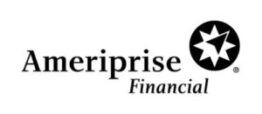
Thomas J. Brenner, Jr., of Orrville, Ohio, a stockbroker with First American Securities, Inc., was fined $30,000.00 and suspended for sixteen months from associating with any Financial Industry Regulatory Authority (FINRA) member firm in any capacity after consenting to findings that he made misrepresentations and unsuitable recommendations with regard to private placement transactions. Letter of Acceptance, Waiver and Consent, No. 2015046056403(Aug 12, 2016).
According to the AWC, in July 1, 2013, while Brenner was associated with First American Securities Inc., he effected a private placement agreement for an entity, PCG. Apparently, PCG had two individual owners, where one of the owners, CP, was also the indirect owner of First American Securities.
The AWC stated PGC’s private placement offering was geared towards raising monies in order to lend such monies to third parties who were buying and selling Michigan real estate after rehabilitating such properties. The AWC reported that seventy-six of the firm’s investors made investments in the offering of two share classes by PCG, in which $3,250,000.00 was accumulated. One of the two share classes, an A class share, was offered to investors for a one-year investment with a seven percent return; the other offered a three-year investment paying an initial eight percent bonus and eight percent accrual on the principal and bonus.
The AWC stated that Brenner had solicited the PCG offering to investors, in which a private placement memorandum as well as a program summary for the offering was provided to investors. According to FINRA, Brenner made, in a negligent fashion, material misstatements or material omissions to investors concerning the PCG offerings. FINRA also claimed that Brenner made comments which lacked balance, were not fair, and which were ultimately exaggerated and misleading to investors.
Particularly, FINRA found that PCG’s private placement memorandum and program summary had made claims about the security and safety of the investments, and forecasted investment returns that clients would receive. The aforementioned summary reportedly claimed to clients that their investment was backed by real estate; that the investment was unencumbered in non-leveraged real estate that would allow for the investor to receive absolute returns; and that the investment strategy would be geared towards providing investors with a positive return no matter the direction that the equity and debt markets would take. FINRA claimed that these statements were marred, in that they were speculative and carried substantial risk of loss.
FINRA also found that that PCG’s private placement memorandum contained false statements regarding PCG’s purpose. Specifically, the private placement memorandum purportedly represented that the lending of the investors’ funds would be to as many as five third-party entities, and that a borrower had not been identified yet. FINRA found that PCG only intended on lending funds to one borrower, and such borrower was identified.
FINRA further claimed that the private placement memorandum and program summary failed to disclose a going concern assessment contained in the Form 10-Q filed with the SEC, nor did the private placement memorandum and program summary detail the chief executive officer’s prior bankruptcy filing. FINRA found that Brenner’s aforementioned conduct with regard to this private placement memorandum was violative of Securities Act Section 17(a)(2), as well as FINRA Rules 2010 and 2210(d)(1).
According to the AWC, Brenner also misrepresented an offering in UR LLC, an entity created in 2015 which was designed to fund medical and healthcare practices in the course of their financing of laboratories which conducted toxicology tests. One of UR LLC’s three founders was also CP, the indirect owner of First American Securities.
Apparently, the UR LLC arrangement, through the issuance of one and three year notes, sought to raise $7,500,00.00. Apparently, Brenner was provided by CP with the ability to sell the UR offering to customers in return for an 11.5% commission. Brenner reportedly raised $1,630,000.00 through twenty of the firm’s customers, and raked in $189,000.00 in connection with such.
FINRA found that Brenner made, in a negligent fashion, material misstatements or material omissions concerning the UR LLC offerings. FINRA also found that Brenner had made comments which lacked balance, were unfair, and which were exaggerated and misleading to the investors.
Particularly, FINRA found that Brenner represented to investors that he would receive 10% commission, when in fact he received the aforementioned 11.5%. Additionally, FINRA found that the executive summary provided to investors made references to the UR private placement memorandum that was not even in existence when such statements were made.
FINRA also noted that UR LLC’s executive summary claimed that investors would receive capital preservation and had an unencumbered security interest in medical receivables generated through the aforementioned health care practices. Yet, FINRA found that the investors did not have any security interest in such receivables, and that there were no personal guarantees made by physicians in connection with guaranteeing loans provided to them.
FINRA further stated in the AWC that UR LLC’s executive summary did not provide information concerning the risks of the UR LLC investment, and found such investment speculative and substantially risky. Moreover, the documents provided to investors reportedly failed to indicate that the chief executive officer of the UR LLC was actually barred by FINRA in connection with a November 2011 disciplinary action.
The AWC also noted that the executive summary failed to inform investors that the business structure of UR LLC was not legally certain, and that the business structure could be violative of certain state and federal laws. FINRA found that Brenner’s aforementioned conduct with regard to this private placement memorandum was violative of Securities Act Section 17(a)(2), as well as FINRA Rules 2010 and 2210(d)(1).
FINRA additionally found that Brenner did not conduct a reasonable amount of due diligence with regard to the aforementioned private placements. Apparently, Brenner was responsible for ensuring that the private placements were compliant, which required due diligence. FINRA found that Brenner was neither cognizant that he was the principal designated for such due diligence, and Brenner was inexperienced regarding the supervision of private placements.
According to the AWC, Brenner did not independently investigate the issuers or managerial authority involved. Brenner reportedly failed to investigate whether the issuers were able to repay investors, or whether the issuer had a legal and valid business plan. FINRA noted that Brenner never investigated claims made by the issuer in connection with the investments.
As a result of Brenner’s supervisory mishaps, FINRA found that Brenner violated FINRA Rules 2010 and 3010. FINRA also found that Brenner violated FINRA Rules 2010 and 2111 for lacking an adequate basis for recommending to customers the investment in UR LLC. In addition to the fine and suspension, Brenner was disgorged of $189,000.00 of commission associated with the offerings.
The information contained herein has been obtained from reliable sources however may not be accurate and is not guaranteed by us. Readers are encouraged to undertake their own independent investigation and evaluation of the relevant facts. All claims and allegations are subject to adjudication, decisions may be subject to appeal, and no inference is intended, nor should any inference be made from any information contained herein from any source.
This posting and the information on our website is for general information purposes only. This content should be not considered legal advice, and any responses, comments, e-mails, other communications do not form any attorney client relationship. Attorney Advertisement. See Important Disclaimer
Guiliano Law Group
Our practice is limited to the representation of investors. We accept representation on a contingent fee basis, meaning there is no cost to you unless we make a recovery for you. There is never any charge for a consultation or an evaluation of your claim. For more information, contact us at (877) SEC-ATTY.
For more information concerning common claims against stockbrokers and investment professionals, please visit us at securitiesarbitrations.com
To learn more about FINRA Securities Arbitration, and the legal process, please visit us at securitiesarbitrations.com








